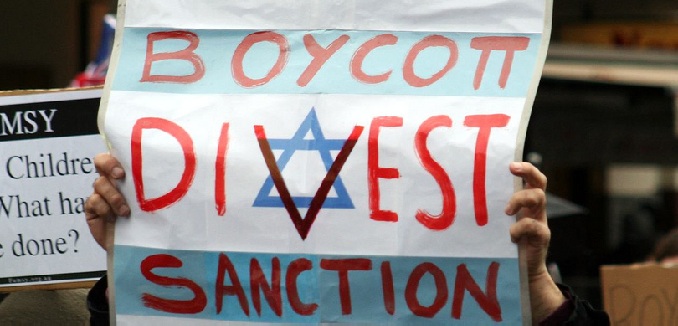Greens leader Christine Milne on the eve of the country’s election rushed to emphasize her party’s rejection of efforts to boycott Israel, after opponents made it a key issue. The Australian reported last week on the back-and-forth between the NSW Greens and the opposition, which had made the support by some Greens of the so-called boycott, divestment and sanctions movement into a political liability:
Greens leader Christine Milne said earlier this week: “The Greens reject the BDS and have never supported it in any way.” The claim was dismissed by the opposition as “utter nonsense”… Opposition foreign affairs spokeswoman Julie Bishop demanded Senator Milne clarify her party’s stand on “the anti-Semitic boycott, divestment and sanctions campaign”… The Australian understands divides on BDS are causing concerns within the Greens’ campaign, with fears the issue could cost them votes among well-heeled, socially liberal voters.
A report [PDF] released this summer by the the Los Angeles-based Simon Wiesenthal Center described the BDS movement as a “a thinly-disguised effort to coordinate and complement the violent strategy of Palestinian, Arab, and Muslim ‘rejectionists’ who have refused to make peace with Israel for over six decades,” according to center-affiliated historian Dr. Harold Brackman.
Citing the “three D’s” test developed by the Russian-Israeli dissident-turned-parliamentarian Natan Sharansky, Brackman outlined how BDS efforts were rooted in anti-Semitic principles. First, its proponents employ “double standards,” singling Israel out for criticism while ignoring far more egregious human-rights abuses in Arab and Muslim countries and beyond. Second, they “demonize” Israel with insidious and false comparisons to Nazi Germany and apartheid South Africa, and last, they “delegitimize” Israel’s right to exist, but that of no other country anywhere in the world.
The BDS movement has been shaken in recent days by violent anti-Semitism espoused at South African BDS rallies. Protesters at a recent rally sang “shoot the Jew” at a Johannesburg University performance by Israeli jazz musician Daniel Zamir. A leader of the movement subsequently insisted that the chants were in-bounds and not at all anti-Semitic.
[Photo: Takver / Flickr]




